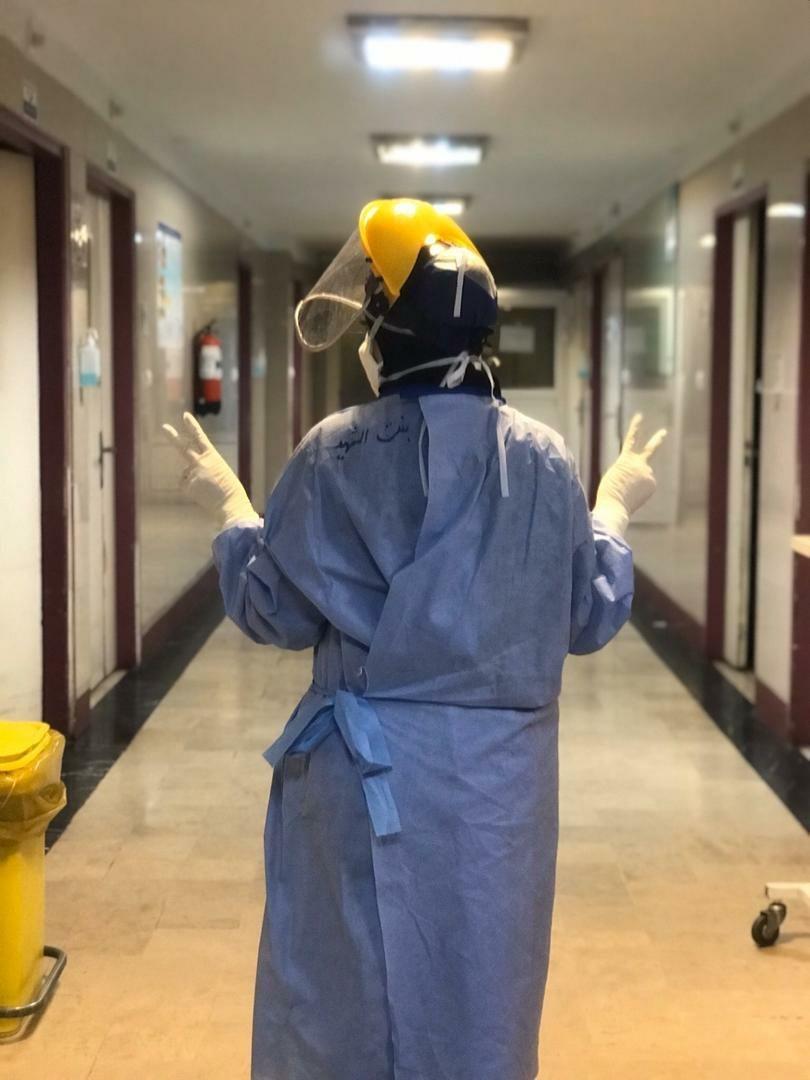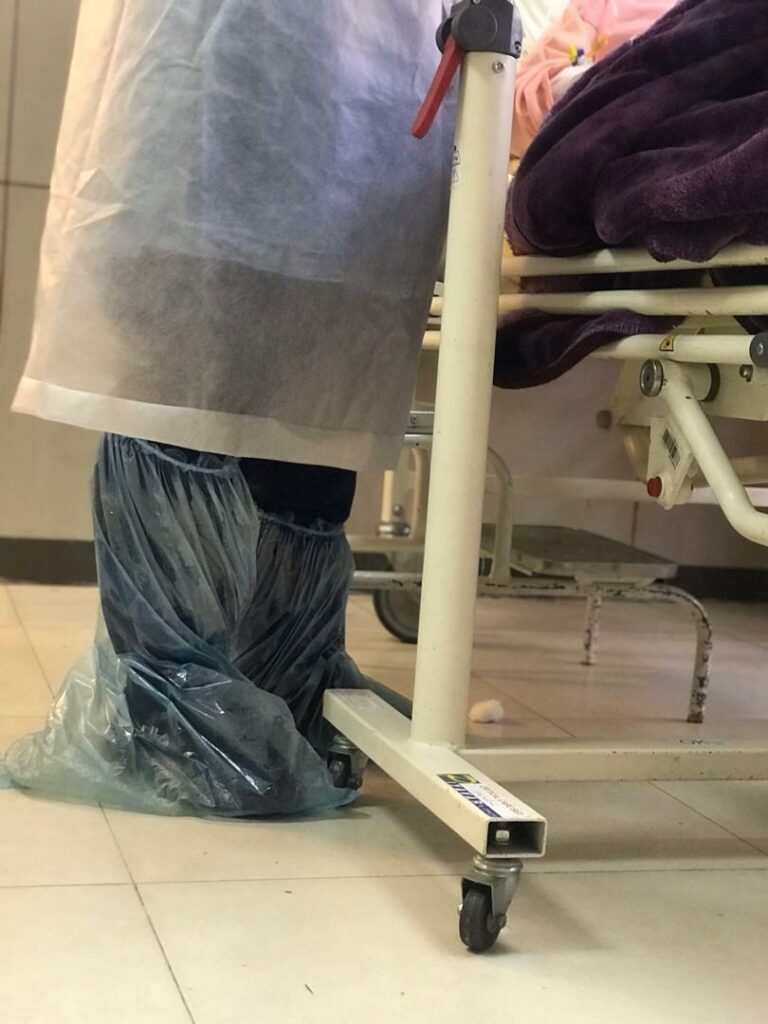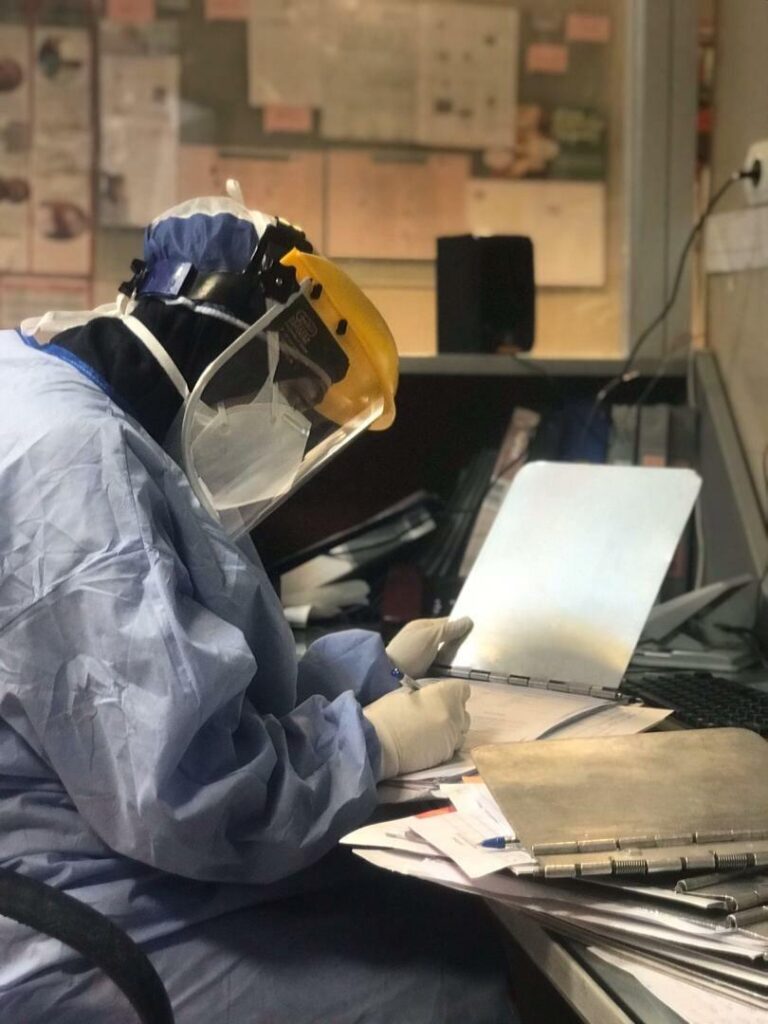Zahra, 23 years of age, is a graduate of Microbiology and the daughter of a martyr. At the moment, she is voluntarily purifying the bodies of individuals who lost their lives to the coronavirus.
A journalist with the Young Journalists’ Club (YJC) noticed her after reading her Instagram posts.
“Her recent posts were about her activities at hospital and purifying the bodies of those who had died of the coronavirus,” says the YJC journalist.
“I read those posts. It was very odd to me to hear that a girl born in the 1990s (I found it out from her page) has been bold enough to choose such a demanding job!” says the journalists.
“It was weird and frightening, especially for me, who is even afraid of living patients, let alone the dead,” the journalist adds.
The following is the full text of an interview with Zahra.
Zahra, didn’t your husband stop you from doing this?
When I first told my husband, he became a little surprised because it is a high-risk job. But after he realized how serious I was, he didn’t object to it and even he himself found a hospital for me. Of course, my husband himself goes to help wherever they need workforce. At the moment, he is helping disinfect public places.
Why did you decide to take up this job and was the dead bodies of coronavirus patients?
I am mentally prepared to do these sorts of job; of course, I hadn’t had any experience before. Also, I saw that they are mostly understaffed in this section. These days, those who want to help, do jobs such as sewing face masks, etc., and there are not enough personnel to purify dead bodies.
I thought to myself that I’m not afraid of the dead; so, I thought I’d better do something. I followed up the matter from Qom all the way to Tehran where I began looking for a hospital which needed staff to purify bodies of dead coronavirus victims. Finally, I found the Baharloo hospital in Tehran.
Do you purify the dead on the same hospital bed where they passed away?
Sometimes on the same bed because the body of the dead person should not get cold. If much time passes, their arms may get stiff. So, we purify them on the same hospital bed where they died. But sometimes it gets late as we are working in other hospitals (At the moment I’m working in three hospitals). In that case, they take the dead person to the mortuary where we purify them.
How do you purify bodies of coronavirus patients? You don’t use water, do you?
No. We purify them by Tayammum (dry purification ritual) using marble. We do it three times using their own hands and as many times with our hands. We have a rectangular piece of marble which we put on their abdomens and do it.
When leaving the hospital, aren’t you afraid that you might be carrying the virus and might transmit it to your loved ones?
Most of us are carriers of this disease. The only thing we can do is to decrease our contact with those around us. My husband and I don’t get too close to each other when we get home. We somehow self-quarantine ourselves. Moreover, we have no contacts with relatives.
How did you feel when you first purified the dead body of a coronavirus person?
I studied microbiology at university and I am somehow familiar with nursing activities. The day when I was, for the first time, told to go purify a dead coronavirus patient, I was administering an IV to a patient in hospital. They contacted me and told me that a lady had died of the coronavirus in a hospital around Tehran, and that I had to go there to purify her body. At first, I was afraid and was murmuring to God as the issue seemed to be serious.
I entered the ICU of the hospital. I moved the white sheet on her. When I first saw the face of that 50-year-old woman, I felt pity for her loneliness instead of being frightened. Coronavirus patients are so lonely. We are used to waiting impatiently at the door when our loved ones are hospitalized at the ICU, expecting good news. However, coronavirus patients have no visitors.
After going through the Tayammum ritual, the dead are taken to the Behesht-e-Zahra cemetery where only few people are present. So, the dead are buried in a state of loneliness even without having a memorial service.
How many dead people do you purify every day?
I work night shifts from 9 pm to 9 am. Although I’m working in three hospitals, I purify 1 to 2 dead people each night. That’s as many as we have. Even some nights there was no dead person. I should say that the number of those who recover is much more than the number of those who die. Of course, a lot of people are infected as well.
Do you get any money for what you do?
Nothing.
Aren’t you tired and don’t you regret what you have been doing?
No, not at all. When I go to patients’ bedside and see their mental condition, I think that something must be done for them. These patients are so lonely and they have low spirits. When there is no dead person to purify, we try to go to patients and talk to them to somehow boost their morale. For example, there was this old lady who was in a very bad mental condition. They would even put nappies on her. When we talked to her and boosted her spirits, she began to get better each day. She even got out of bed to walk yesterday.



